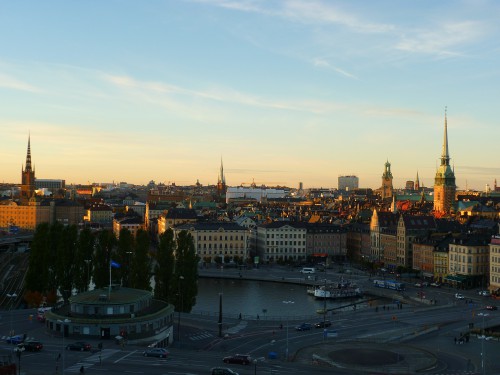A bad economy and the idea of prosperity are incompatible. Many people over the recent history of mankind have traveled from various parts of the globe to the West expecting all of their dreams to come true. Some achieved these dreams and some wonder, “Did I make a wrong decision in leaving home?” When feelings of such disenfranchisement arise as an immigrant in a new country, people feel the need to express this anger, sometimes publicly.
Over the past few weeks in Sweden there have been many riots by young lower class immigrants in retaliation to a bad economy and a very high unemployment rate. The most recent attack took place last week, where during riots multiple cars and a school were set ablaze. Other attacks involved various buildings and cars being set ablaze, leaving Swedish citizens very confused as to why their immigrants would commit these actions. Sweden welcomes immigrants and asylum seekers, including those fleeing violence in countries like Iraq, Somalia, and Syria. The country ranks as one of the world’s happiest places. These attacks are not anything new, but lately have been more consistent. In 2008 and 2010 immigrants clashed with the police in Malmo, Sweden. The past week’s arson attacks in Stockholm and the spectacle of teenagers hurling stones at firefighters have left many Swedes wondering what went wrong in a society that has invested so much in helping their underprivileged.

These acts of terrorism, as many Swedish citizens are starting to consider them, have been causing mixed feelings with the nation’s efforts of helping and taking in underprivileged refuges from other countries. Many Swedes were baffled by the immigrants attack because the school they set ablaze consisted of 325 students that are all from immigrant backgrounds. Sweden’s Prime Minister, Fredrik Reinfeldt, called the riots “hooliganism,” while the Swedish Democrats have used these violent acts to push their anti-immigrant stance and for the deportation of immigrants who commit crime. The majority of these immigrant rioters come from the suburbs of Husby and Tensta of Stockholm. In this region, the riots began May 19 after the police shot and killed a 69-year-old immigrant holding a knife.
Additionally the major spark drawing motivation for these young immigrants is the severity of the unemployment rate. The national unemployment rate is about eight percent, but the rate is at least twice as high in immigrant areas and four times as high for those under 25 years old.
The last prominent factor as to why so many young immigrants are rioting is because of discrimination and racism. The New York Times recently quoted a young Iraqi-Swedish immigrant stating “Sweden has given me opportunities I didn’t have in Iraq,” but “I’m not treated the same as a white guy.”
An older Middle Eastern immigrant that has been living successfully in Sweden for over 20 years commented on this issue to The Times. He mentioned how he sympathizes for these young immigrants that came here from other countries and cannot find means to make money and additionally feel discriminated against. But he says they are demanding too much for what they expected to fall in their lap upon their arrival to Sweden.
Many job seekers, particularly young men, had unrealistic demands and expected the state to find them work in their own neighborhoods. Many people aged from 20 to 22, want jobs now, but they expect to find them right down the road from their house. This eventually becomes a government problem in not being able to find them jobs they will accept and then again when they destroy property that the Swedish government has to replace. These acts of violence committed in retaliation to the unemployment rate needs to cease. The burning of a school that educates immigrants to propel their lives is not wise. These young immigrants need to be more grateful for the opportunities given to them by the Swedish government, and they need to remember beggars cannot be choosers.












